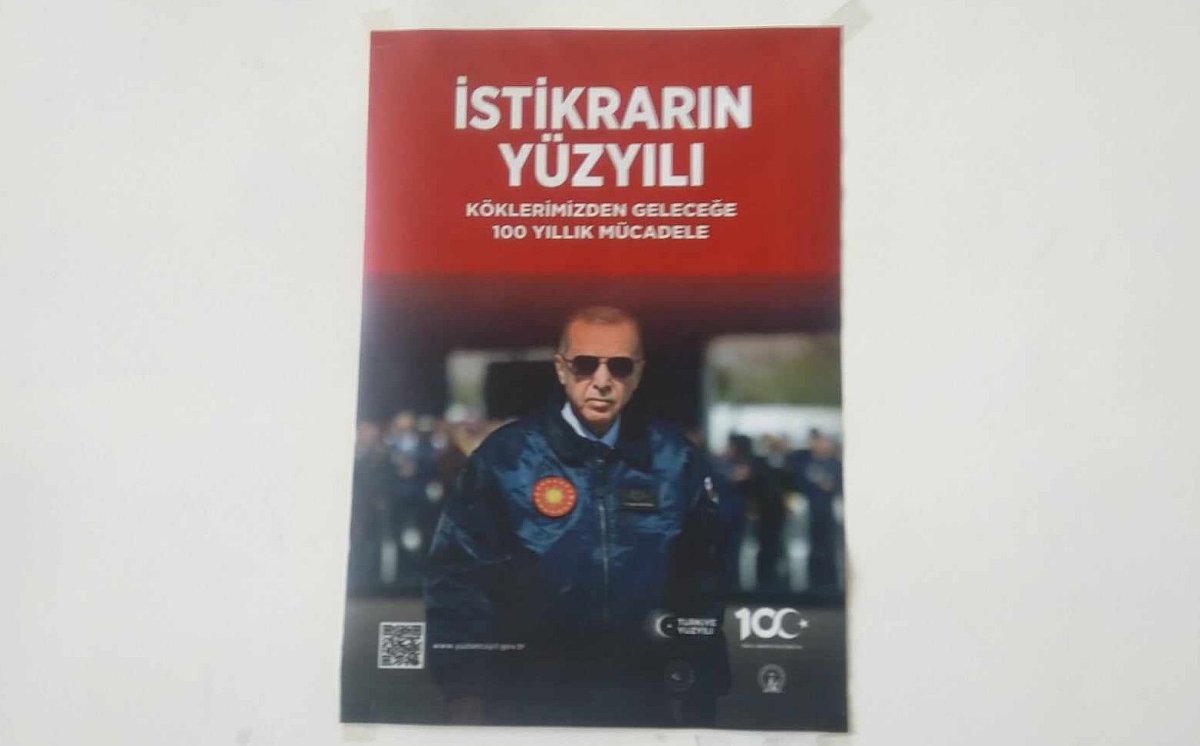Bei den kommenden Kommunalwahlen entscheidet sich die Zukunft der Türkei

Poster mit Präsidenten im Flughafengebäude von Edremit, Bild: Thomas v. der Osten-Sacken
Am 31. 3 sind Kommunalwahlen in der Türkei. Präsident Erdogan will dabei unbedingt die Macht in den großen Städten, vor allem in Istanbul, zurück gewinnen.
Als Istanbul bei den letzten Kommunalwahlen an die Opposition verloren gegangen war stellte dies die bislang größte Niederlange in der politischen Karriere von Präsident Reccep Tayyip Erdogan dar: Eine Schlappe, die er unbedingt rückgängig machen will. Entsprechend legt er sich für seine AKP auch ins Zeug, um die Millionenstadt am Bosporus zurück zu gewinnen. Zugleich kündigte er an, dass dies sein letzter Wahlkampf sein werde und er plane, sich zur nächsten Wahl des Präsidenten aus der Politik zurück zu ziehen.
In Foreign Policy analisiert Sinan Ciddi in einer längeren Analyse, was bei diesen Wahlen auf dem Spiel steht und dass einmal mehr die Opposition kein gutes Bild abgibt:
Erdogan is now actively campaigning on behalf of his Justice and Development Party (AKP) and promoting its mayoral candidates to win in the country’s big cities, many of which the AKP lost in 2019—primarily, Istanbul and Ankara. This is not a vanity project for Erdogan. Dominating the realm of local and provincial government would also allow him to regain control over a vast spoils system rooted in the local level. The foundation of Erdogan’s popularity has long been the AKP’s ability to grant construction permits, control zoning, and provide urban welfare services to partisan supporters.
The local elections are critical for Erdogan because they could afford him the chance to pursue a new constitution, which could do away with presidential term limits and the remaining elements of judicial independence. Erdogan has recently reiterated that this would be his final term in office, and that he would not seek re-election as president in 2028. But Turkey’s last constitutional referendum shows that Erdogan could use an electoral victory to seek constitutional changes that benefit him personally. A victory at the local level could easily be exploited as a political mandate of this sort.
In other words, the upcoming election cycle presents the opportunity for Erdogan to consolidate power at both the national and local level—and to cement his dominance over the entire Turkish political system for years to come. What are the chances he will succeed? (...)
If the AKP wins, it will be mainly due to two factors: the incompetence of the opposition parties and the Erdogan factor.
Much like the presidential election of 2023, if the political opposition was trying to let the AKP and Erdogan win, its present electoral “strategy” is precisely how it would go about it. Unlike the 2019 and 2023 elections, the opposition Nation Alliance coalition is defunct. This means that the ability of voters to coalesce around one mayoral candidate that is supported by the main opposition parties has dissipated.
Nowhere is this more critical than in Istanbul and Ankara—the two big prizes for Erdogan. Istanbul’s CHP mayor, Ekrem Imamoglu—who won the race twice in 2019 despite Erdogan’s attempts to deny him victory through a forced election rerun—was only victorious because he was backed by all the parties in the Nation Alliance as well as the pro-Kurdish Peoples’ Democratic Party (HDP). As it stands, the alliance no longer supports Imamoglu’s candidacy, and other groups, such as the HDP and Meral Aksener’s Good Party are running their own candidates. The same risk exists for Ankara’s CHP mayor, Mansur Yavas. Without the opposition unifying behind mayoral candidates, Erdogan has the opportunity to exploit the divisions within the opposition camp.